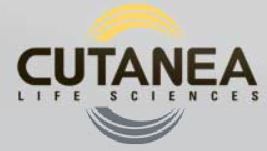预约演示
更新于:2025-11-08
Furosemide/Digoxin
呋塞米/地高辛
更新于:2025-11-08
概要
基本信息
在研机构- |
非在研机构 |
权益机构- |
最高研发阶段终止临床2期 |
首次获批日期- |
最高研发阶段(中国)- |
特殊审评- |
登录后查看时间轴
结构/序列
分子式C41H64O14 |
InChIKeyLTMHDMANZUZIPE-PUGKRICDSA-N |
CAS号20830-75-5 |
查看全部结构式(2)
关联
5
项与 呋塞米/地高辛 相关的临床试验NCT05599971
The Efficacy of Intralesional Injection of Combined Digoxin and Furosemide Versus 5-Flurouracil in the Treatment of Plantar Warts
The aim of the current work is to evaluate the efficacy and safety of intralesional combined Digoxin and furosemide versus intralesional 5-flurouracil in the treatment of plantar warts.
开始日期2023-02-22 |
申办/合作机构 |
NCT03684772
A Phase 2, Randomized, Double Blind, Vehicle Controlled, Parallel Group Study to Explore the Efficacy, Pharmacodynamics and Safety of Topical Ionic Contra-Viral Therapy (ICVT) Comprised of Digoxin and Furosemide in Actinic Keratosis
To explore the pharmacodynamics and evaluate safety, tolerability and clinical efficacy of ICVT comprised of digoxin and furosemide (dual agent), digoxin (single agent), furosemide (single agent) in patients with AK.
开始日期2018-10-22 |
申办/合作机构 |
NCT03334240
A Phase 2, Randomized, Vehicle-controlled, Double-blind Study to Explore the Efficacy, Pharmacodynamics and Safety of Topical Ionic Contra-viral Therapy (ICVT) Comprised of Digoxin and Furosemide in HPV-induced Genital Lesions of Immunocompromised and Immunocompetent Patients
This study is intended to explore and evaluate the pharmacodynamics and clinical efficacy of the ionic contra-viral therapy CLS003 in immunocompromised and immunocompetent patients with benign and premalignant HPV-induced genital lesions
开始日期2017-10-05 |
申办/合作机构 |
100 项与 呋塞米/地高辛 相关的临床结果
登录后查看更多信息
100 项与 呋塞米/地高辛 相关的转化医学
登录后查看更多信息
100 项与 呋塞米/地高辛 相关的专利(医药)
登录后查看更多信息
5
项与 呋塞米/地高辛 相关的文献(医药)2025-07-24·Current drug research reviews
Efficacy and Safety of Ionic Contra-viral Therapy (Digoxin-Furosemide)in the Treatment of Multiple Cutaneous Warts: A Systematic Review,Meta-analysis, and Trial Sequential Analysis
Article
作者: Singh, Juhi ; Singh, Madhusudan Prasad ; Maheshwari, Manisha
Introduction::
The primary objective of this systematic review was to evaluate the therapeutic efficacy and safety profile of intralesional Ionic Contra-Viral Therapy (ICVT)-a combination of digoxin and furosemide-in the treatment of multiple cutaneous warts.
Methods::
This meta-analysis was conducted in accordance with PRISMA guidelines and was prospectively registered in PROSPERO (CRD42024544551). A comprehensive literature search was performed up to April 2024 across PubMed, MEDLINE, Scopus, Cochrane CENTRAL, ClinicalTrials.gov, and Google Scholar. Eligible studies included randomized controlled trials involving adults with ≥2 cutaneous warts treated with intralesional digoxin and furosemide, assessing outcomes, such as complete and partial clearance, wart size reduction, and adverse events. Exclusion criteria included case reports, reviews, and preclinical studies. Data extraction was performed independently by two reviewers, with discrepancies resolved through consensus. The Cochrane RoB 2 tool was used for risk of bias assessment. Meta-analyses were conducted using a random-effects model, and heterogeneity was evaluated using the I² statistic. The quality of evidence was graded using the GRADE framework.
Results::
Seven randomized trials, including a total of 391 patients, were analyzed. The ICVT group demonstrated significantly higher complete wart clearance compared to placebo (56.8% vs. 2.8% RR = 13.27, 95% CI = 2.93-60.17; p = 0.0018). Partial response was lower in the ICVT group (5.08% vs. 10% RR = 0.66, 95% CI = 0.09-5.09; p = 0.69). Adverse events occurred more frequently in the ICVT group (85% vs. 58.8% RR = 1.33, 95% CI = 0.47-3.79; p = 0.59; I² = 97%). Pain during injection was also more commonly reported in the ICVT group (96.6% vs. 63.3% RR = 1.45, 95% CI = 0.29-7.22; p = 0.65; I² = 99%). The certainty of evidence was rated as very low for complete clearance, moderate for partial response, and low for adverse events and injection pain. Trial Sequential Analysis (TSA) indicated that the required information size was not met for any of the outcomes.
Discussion::
While the results suggest that ICVT may be effective in achieving complete clearance of multiple cutaneous warts, the current evidence is limited by small sample sizes, methodological heterogeneity, and potential biases. The higher incidence of adverse events and injectionrelated pain raises safety concerns. The low to very low certainty of evidence, coupled with the TSA findings, underscores the need for more rigorous investigation. Variability in trial design, dosing protocols, and outcome reporting further limits the applicability of current findings.
Conclusion::
Intralesional ICVT shows promise as a therapeutic option for multiple cutaneous warts, particularly in achieving complete clearance. However, due to the limited certainty of available evidence and inconsistent safety data, further large-scale, high-quality randomized controlled trials are necessary to validate these findings and establish standardized treatment protocols.
2019-07-03·Expert opinion on investigational drugs2区 · 医学
Investigational drugs currently in phase II clinical trials for actinic keratosis
2区 · 医学
Review
作者: Mazzeo, Mauro ; Mazzilli, Sara ; Palumbo, Vincenzo ; Lozzi, Flavia ; Campione, Elena ; Terrinoni, Alessandro ; Bianchi, Luca ; Diluvio, Laura ; Lanna, Caterina ; Garofalo, Virginia
INTRODUCTION:
Actinic keratoses (AKs) are limited areas of irregular epidermal growth on a background of excessive solar exposure. The entire sun-damaged skin is considered a field of cancerization with multiple visible and subclinical lesions. AK management requires field-directed therapies to block lesion relapse and prevent squamous cell carcinoma (SCC).
AREAS COVERED:
In this review, we focused on phase II clinical trials for AKs, involving well-known agents and newer molecules such as proapoptotic drugs (VDA-1102, SR-T100, oleogel-S10, ICVT, eflornithine), immunomodulants (isotretinoin, tretinoin) and chemopreventive agents (nicotinamide, perillyl alcohol, liposomal T4N5). We used the website 'ClinicalTrials.Gov' as main reference. We selected and discussed completed and ongoing trials and analysed chemical structure and mechanism of action of the investigated molecules.
EXPERT OPINION:
AK therapy should be tailored on the patient's profile considering first of all the age and site of the AKs, which are relevant parameters for local immune response. The new molecules could be combined to obtain a synergic effect blocking the different steps of skin tumorigenesis. Phase II trials highlight a new therapeutic opportunity to block selectively cell proliferation regulators and work both on the field of cancerization and on the AKs currently present.
2019-05-01·The British journal of dermatology1区 · 医学
A randomized controlled proof‐of‐concept trial of digoxin and furosemide in adults with cutaneous warts
1区 · 医学
Article
作者: Niemeyer‐van der Kolk, T. ; Feiss, G. ; Burggraaf, J. ; Lemoine, C. ; Rijsbergen, M. ; Beck, S. ; Hogendoorn, G. ; de Koning, M. ; Klaassen, E.S. ; Rissmann, R. ; Kouwenhoven, S. ; Bouwes Bavinck, J.N.
BACKGROUND:
Topical ionic contraviral therapy (ICVT) with digoxin and furosemide inhibits the potassium influx on which DNA viruses rely for replication. Therefore, ICVT was hypothesized to be a potential novel treatment for cutaneous warts.
OBJECTIVES:
To assess the clinical efficacy, safety and tolerability of ICVT in adults with cutaneous warts. The secondary objective was to gain insight into the underlying working mechanism of ICVT.
METHODS:
Treatment with ICVT was assessed for efficacy, safety and tolerability in a single- centre, randomized, double-blind, placebo-controlled phase IIA trial. Eighty adult patients with at least two cutaneous warts (plantar or common) were randomized to one of four treatments: digoxin + furosemide (0·125%), digoxin (0·125%), furosemide (0·125%) or placebo. The gel was administered once daily for 42 consecutive days. Predefined statistical analysis was performed with a mixed-model ancova. The trial was registered at ClinicalTrials.gov with number NCT02333643.
RESULTS:
Wart size and human papillomavirus (HPV) load reduction was achieved in all active treatment groups. A statistically significant reduction in wart diameter of all treated warts was shown in the digoxin + furosemide treatment group vs. placebo (-3·0 mm, 95% confidence interval -4·9 to -1·1, P = 0·002). There was a statistically significant reduction in the HPV load of all treated warts in the digoxin + furosemide group vs. placebo (-94%, 95% confidence interval -100 to -19, P = 0·03). With wart size reduction, histologically and immunohistochemically defined viral characteristics disappeared from partial and total responding warts.
CONCLUSIONS:
This study demonstrates the proof of concept for the efficacy of topical ICVT in adults with cutaneous warts.
100 项与 呋塞米/地高辛 相关的药物交易
登录后查看更多信息
研发状态
10 条进展最快的记录, 后查看更多信息
登录
| 适应症 | 最高研发状态 | 国家/地区 | 公司 | 日期 |
|---|---|---|---|---|
| 光化性角化病 | 临床2期 | 荷兰 | 2018-10-22 | |
| 尖锐湿疣 | 临床2期 | 荷兰 | 2017-10-05 | |
| 生殖器疾病 | 临床2期 | 荷兰 | 2017-10-05 | |
| 跖疣 | 临床2期 | 荷兰 | 2015-01-01 |
登录后查看更多信息
临床结果
临床结果
适应症
分期
评价
查看全部结果
| 研究 | 分期 | 人群特征 | 评价人数 | 分组 | 结果 | 评价 | 发布日期 |
|---|
No Data | |||||||
登录后查看更多信息
转化医学
使用我们的转化医学数据加速您的研究。
登录
或

药物交易
使用我们的药物交易数据加速您的研究。
登录
或

核心专利
使用我们的核心专利数据促进您的研究。
登录
或

临床分析
紧跟全球注册中心的最新临床试验。
登录
或

批准
利用最新的监管批准信息加速您的研究。
登录
或

特殊审评
只需点击几下即可了解关键药物信息。
登录
或

生物医药百科问答
全新生物医药AI Agent 覆盖科研全链路,让突破性发现快人一步
立即开始免费试用!
智慧芽新药情报库是智慧芽专为生命科学人士构建的基于AI的创新药情报平台,助您全方位提升您的研发与决策效率。
立即开始数据试用!
智慧芽新药库数据也通过智慧芽数据服务平台,以API或者数据包形式对外开放,助您更加充分利用智慧芽新药情报信息。
生物序列数据库
生物药研发创新
免费使用
化学结构数据库
小分子化药研发创新
免费使用


